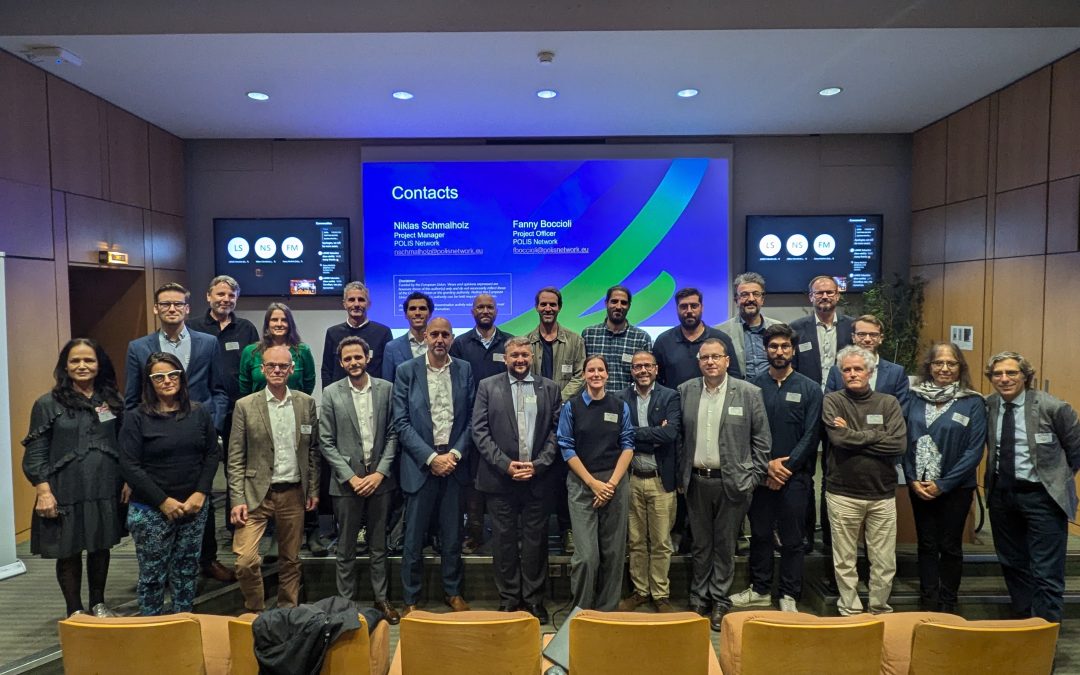As part of the second roadside measurement campaign in Rueil-Malmaison and Dampierre-en-Yvelines near to the French capital of Paris, LENS invited its stakeholders and external guests to visit the noise- and air pollution tests and to discuss L-vehicle policies at the premises of project partner IFPEN on 17 and 18 September. The third stakeholder event will take place on 15 October 2024 in Barcelona. LENS hopes to welcome you there.
The site visit to the measurement campaigns was accompanied by a cross-cutting working group meeting of the LENS project partner POLIS Network in collaboration with ACEM (European Association of Motorcycle Manufacturers). This joint event brought together more than 40 stakeholders from cities, regions, citizens’ groups and industry for a multi-perspective discussion on the potential of powered two-wheelers (PTWs) and light electric vehicles (LEVs).
While the first day focused on the exchange between the working groups on L-vehicles, the second day was dedicated to the LENS project.
The publicly available presentations can be found at the end of this article.
Clean vehicles & air quality – Fuel-efficient electric vehicles – the missing link in zero emission urban mobility?
The session on clean vehicles and air quality opened with the recognition that while EU policy on zero-emission vehicles tends to focus on cars and large electric vehicles, PTWs and LEVs are often overlooked, despite their potential role in reducing emissions.
A key theme of the discussion was the need for cities to adopt a ‘right-sizing’ approach to vehicles. Larger vehicles such as SUVs are often unsuitable for urban areas, and PTWs and LEVs offer a compelling alternative due to their size and agility. These vehicles can cover longer distances and different terrains, making them versatile for urban use. Participants also called for greater standardisation and enforcement of safety regulations for PTWs and LEVs.
Parking Management & Road Space Redistribution
The parking session focused on how cities are addressing the integration of PTWs, LEVs and microcars into the existing mobility landscape. While these smaller vehicles support the trend towards downsizing and reallocation of space, appropriate parking frameworks are often lacking. This gap poses challenges both in terms of space utilisation and compliance with Urban Vehicle Access Regulations (UVARs).
During the discussion, parking infrastructure was repeatedly highlighted as a critical issue for PTWs and LEVs. As the size of cars continues to increase, many cities are rethinking how they allocate parking spaces, creating opportunities to accommodate smaller vehicles such as PTWs and LEVs.
Safety & Security – A new era on two wheels
In the Safety and Security session, speakers discussed how the rise of electromobility is increasing the diversity of PTWs and LEVs, while local governments are implementing ambitious road safety and mobility policies. The session sought to explore how PTWs and LEVs can co-exist with these new regulations and ensure the safe integration of these vehicles into urban traffic.
The role of awareness campaigns and enforcement in promoting responsible road sharing was also discussed, as well as was the wider issue of ‘motonormativity’ (the car-centric approach to road safety), which participants felt needed to evolve to include a wider range of vehicle types.
Urban freight – Exploring the next generation of urban delivery vehicles
A key topic of discussion was the synergy between vehicle right-sizing and the use of light vehicles (LVs) in urban logistics. The need for intermediate solutions, such as mobility hubs, to fill gaps in the logistics network was emphasised. While new cargo bikes are promising, their increasing weight and rigidity – along with proposals to base them on mopeds rather than traditional bicycles – pose challenges. Drivers’ reluctance to switch from vans to bikes, due to concerns about comfort and practicality, remains a significant obstacle.
The discussion also highlighted the need for clear regulations and standards on vehicle weight, height and space. Operators struggle with cargo bikes on uneven pavements and limited cycle lanes, which complicates the balance of space between different types of vehicles.
Governance & Integration – Sharing the way to sustainable mobility
The final session of the day focused on moped sharing and how it can contribute to sustainable urban mobility. Shared bikes and e-scooters have received a lot of attention from policy makers, but shared mopeds also have a growing role to play in providing sustainable transport options, especially in suburban areas. Speakers explored how moped sharing can grow and how local authorities can work with operators to ensure that the shift to shared mobility is safe, equitable and effective.
Looking to the future, several areas of potential development emerged. Increased collaboration between manufacturers, logistics providers and city authorities, as well as the exploration of new service models and the use of data, will be essential to drive innovation and address the complex challenges of urban mobility.
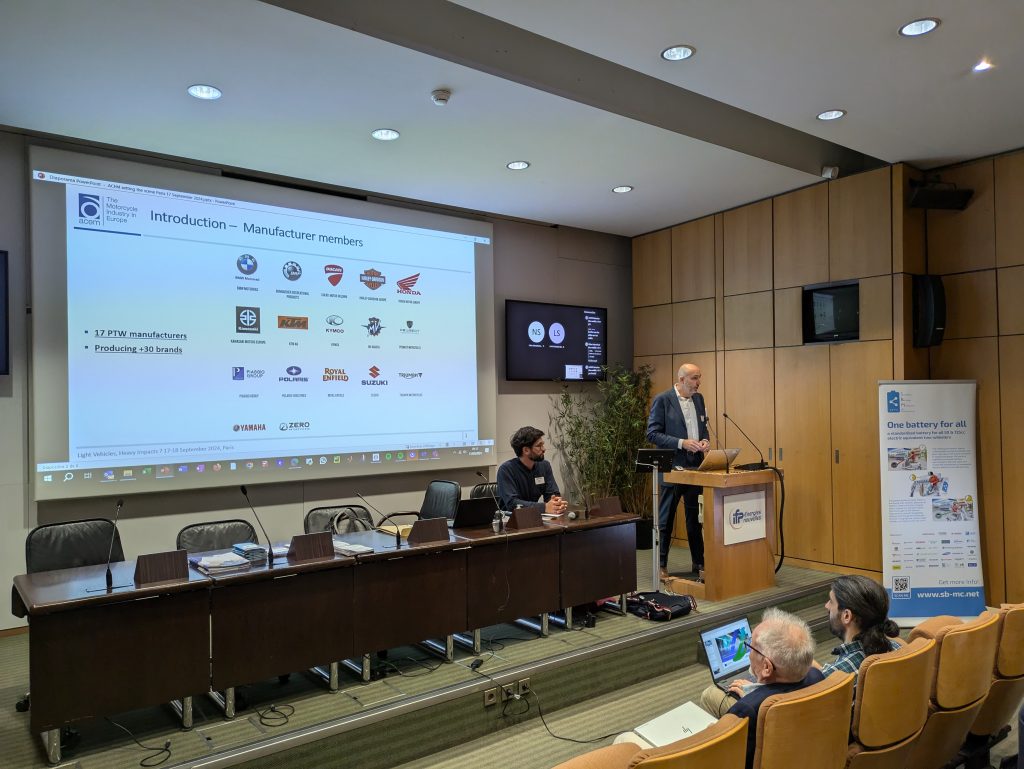
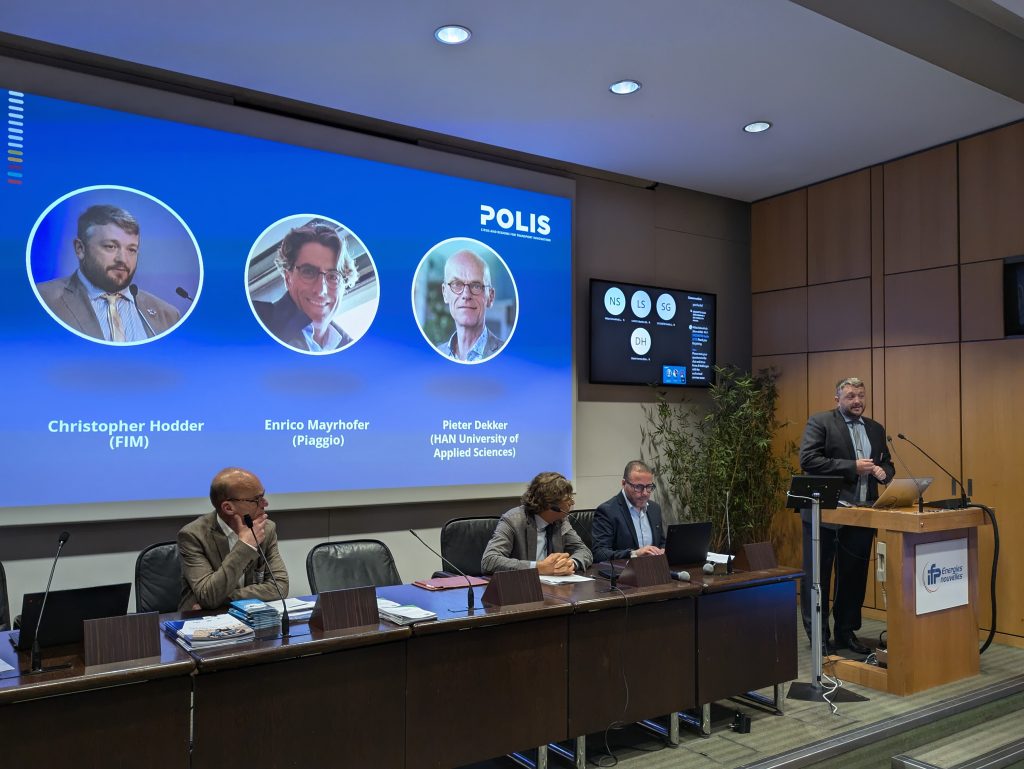
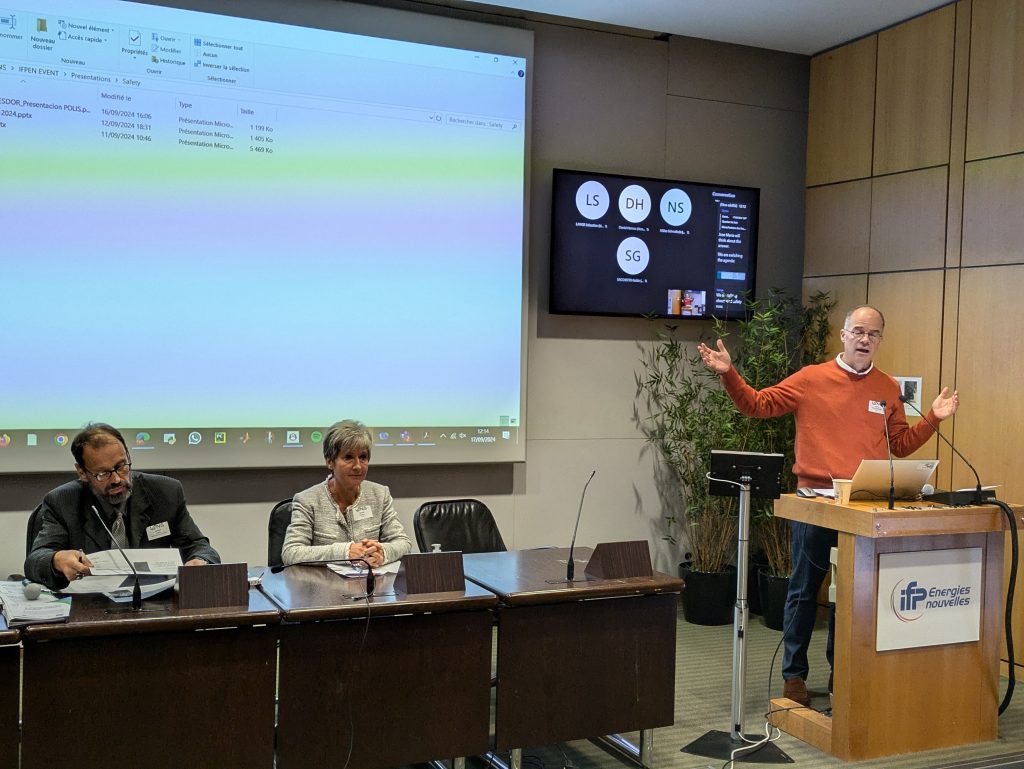
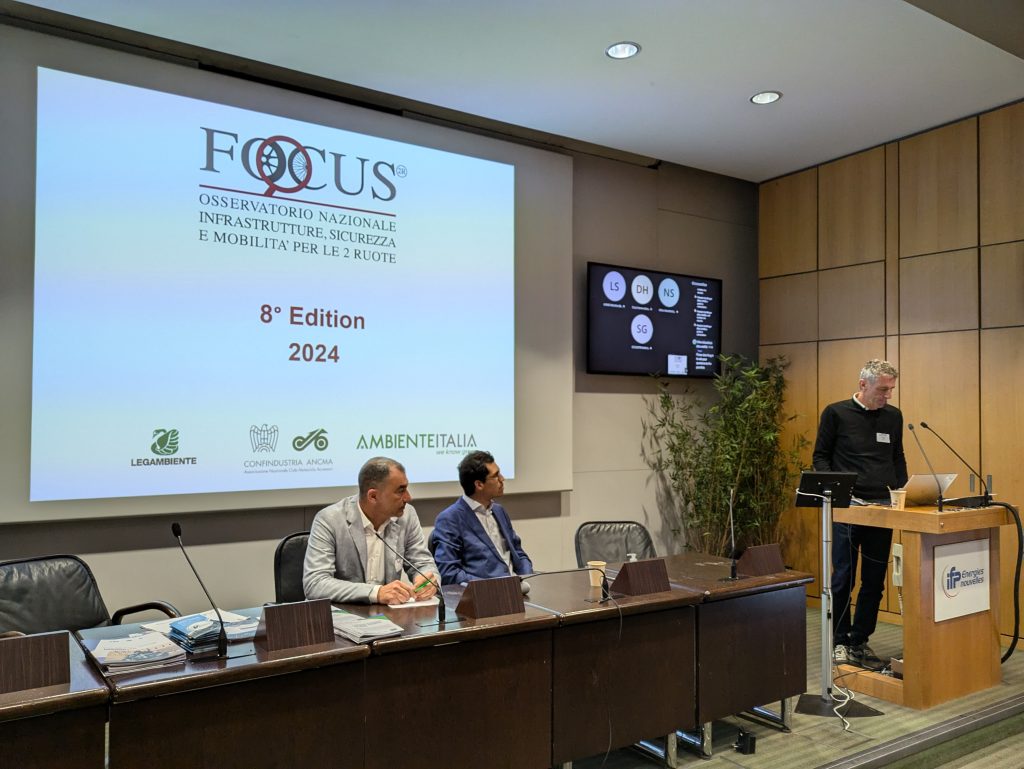
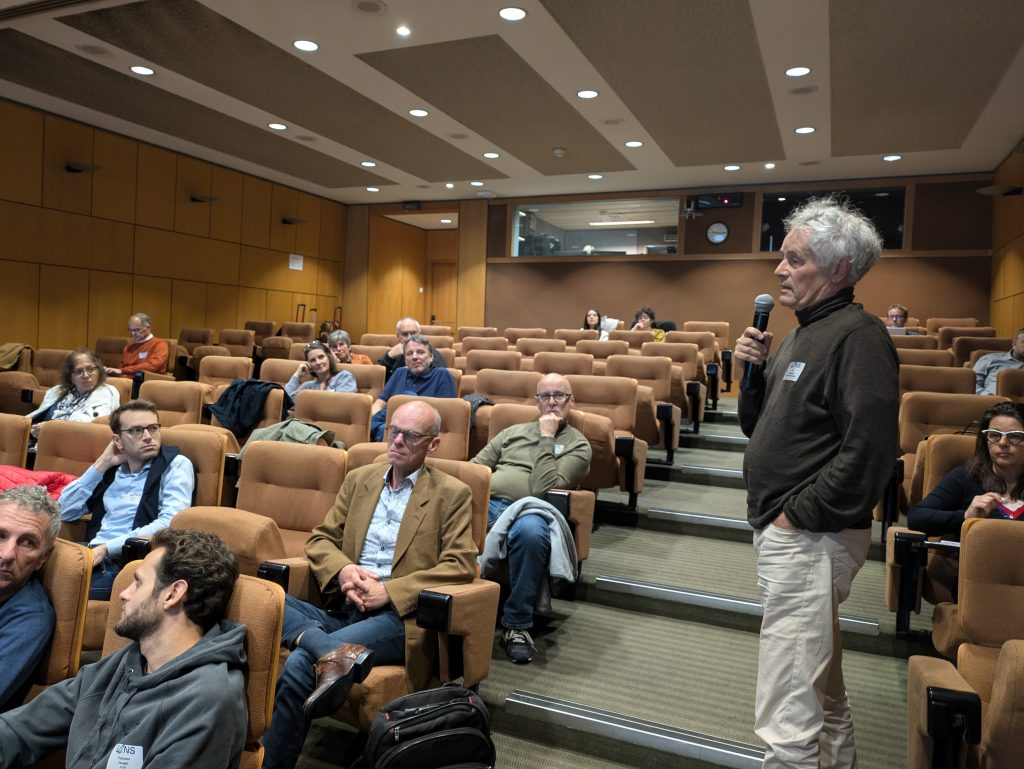
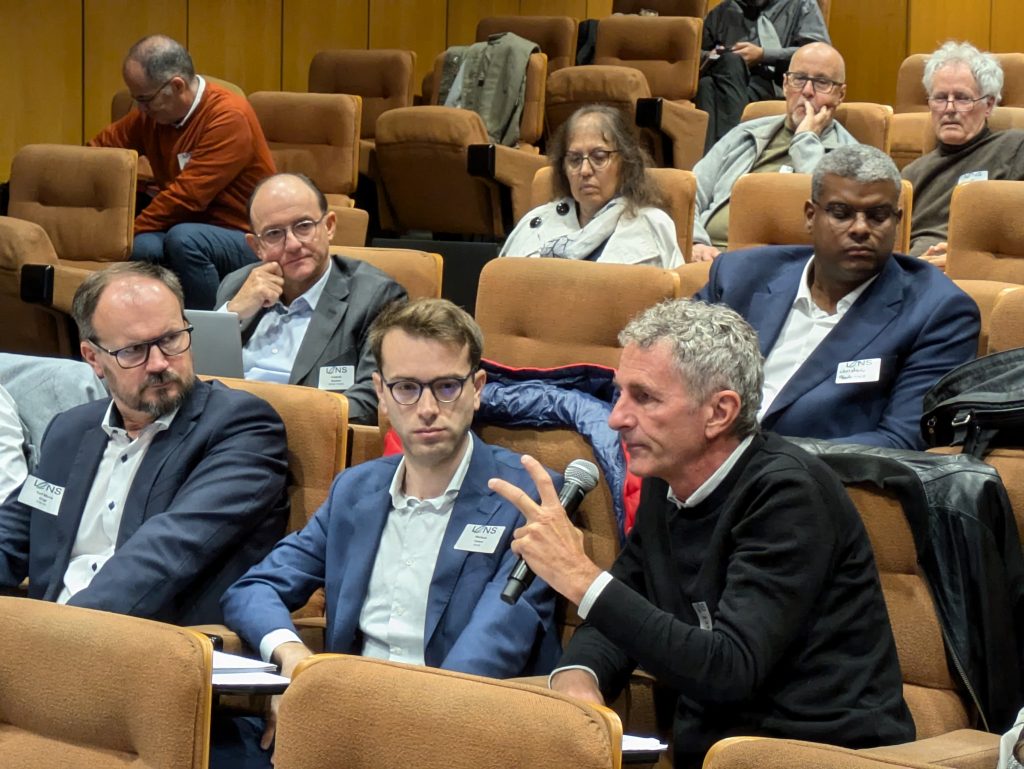
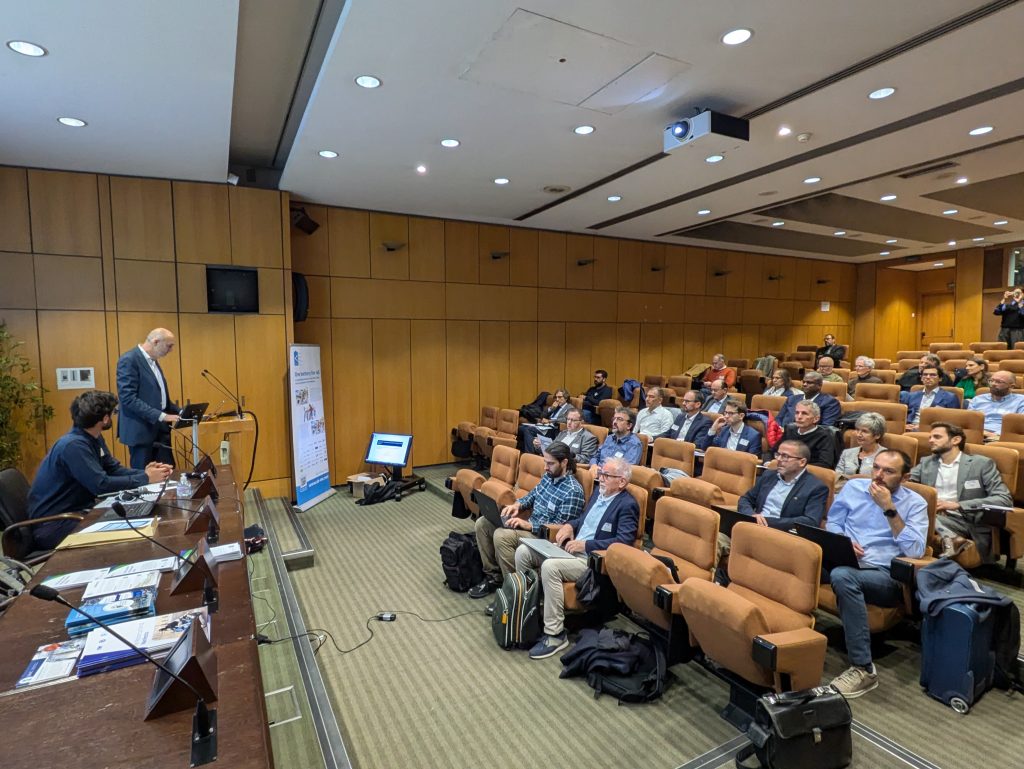
Second day focused on LENS
The second day started with an introduction of the project by EMISIA, which included general statistics, as well as the progress of the real-world and laboratory testing of L-vehicles, highlighting the fact that one third of the noise emission tests and two third of air pollution tests are finished. These first successes can be attributed to the strong cooperation between the technical partners of IFPEN, TU Graz, RWTH, IDIADA and EMISIA.
Details about the execution of tampering in-field surveys were presented by IVL, summarising the results of test results of the Leuven campaign in May. During this campaign over 150 vehicles were tested, with the majority featuring 4-stroke engines. IVL also presented the first figures from the Paris campaign, which after just 1.5 days had already exceeded the number of vehicles tested in the Leuven campaign.
The segment was finalised by an outlook on the upcoming events of the LENS project, including the third stakeholder meeting in Barcelona on 15 October and the POLIS Conference.
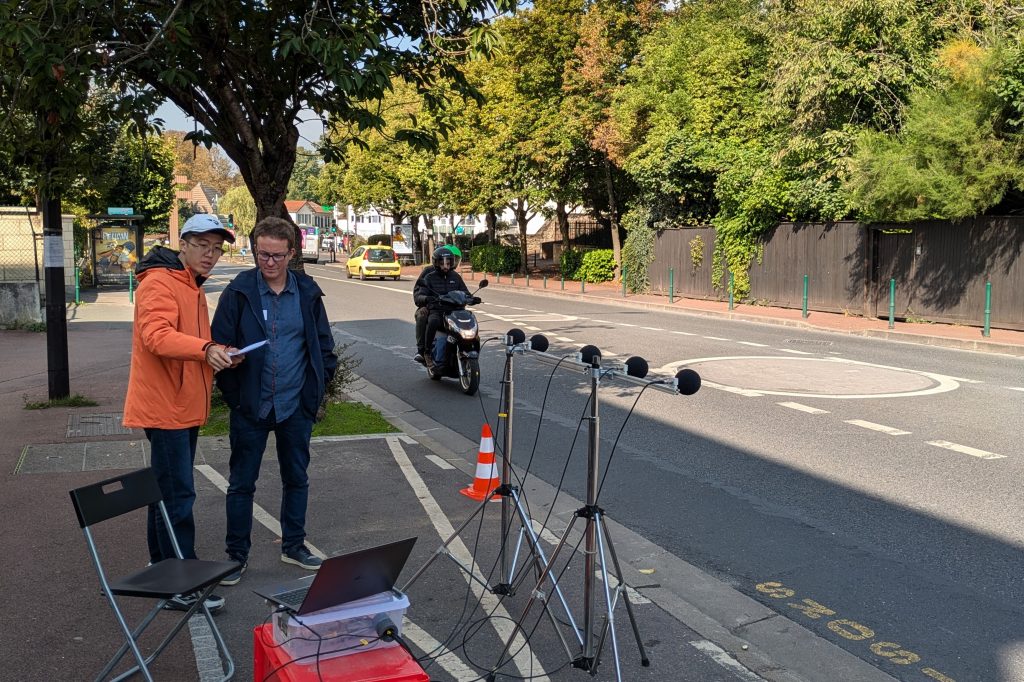
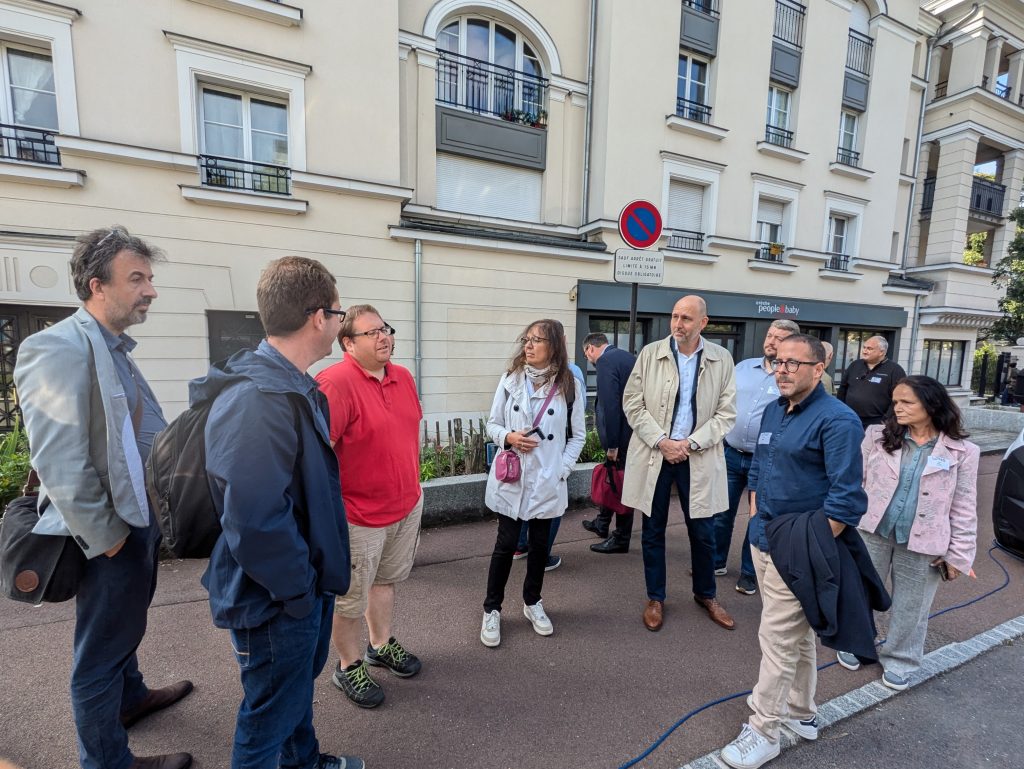
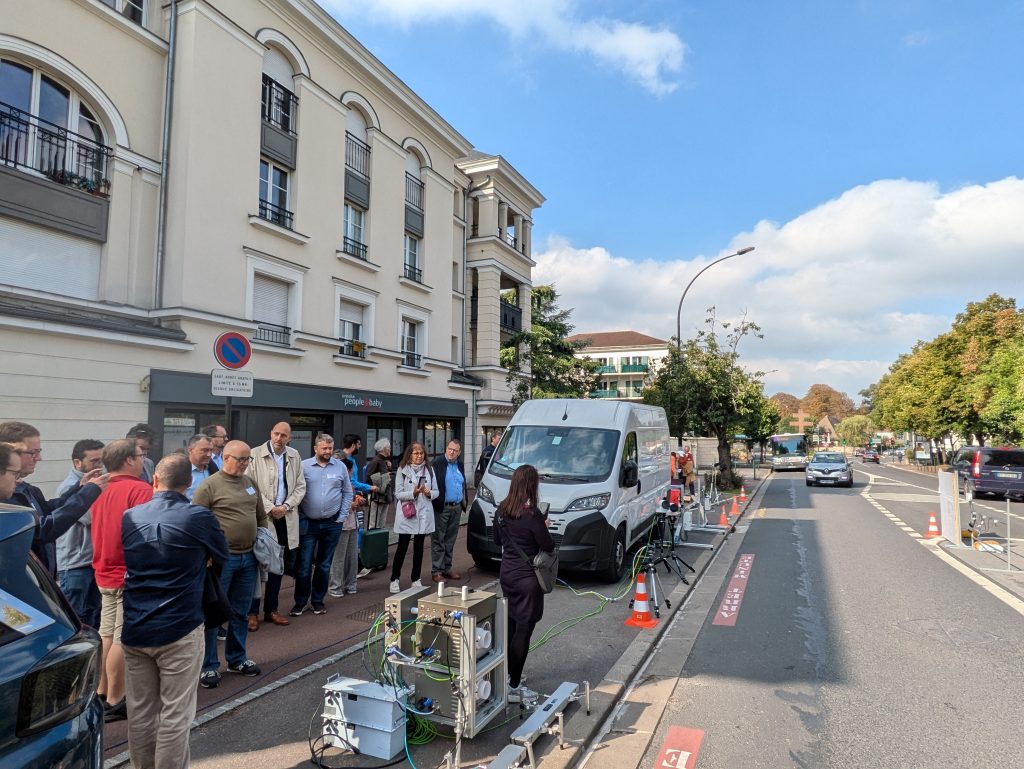
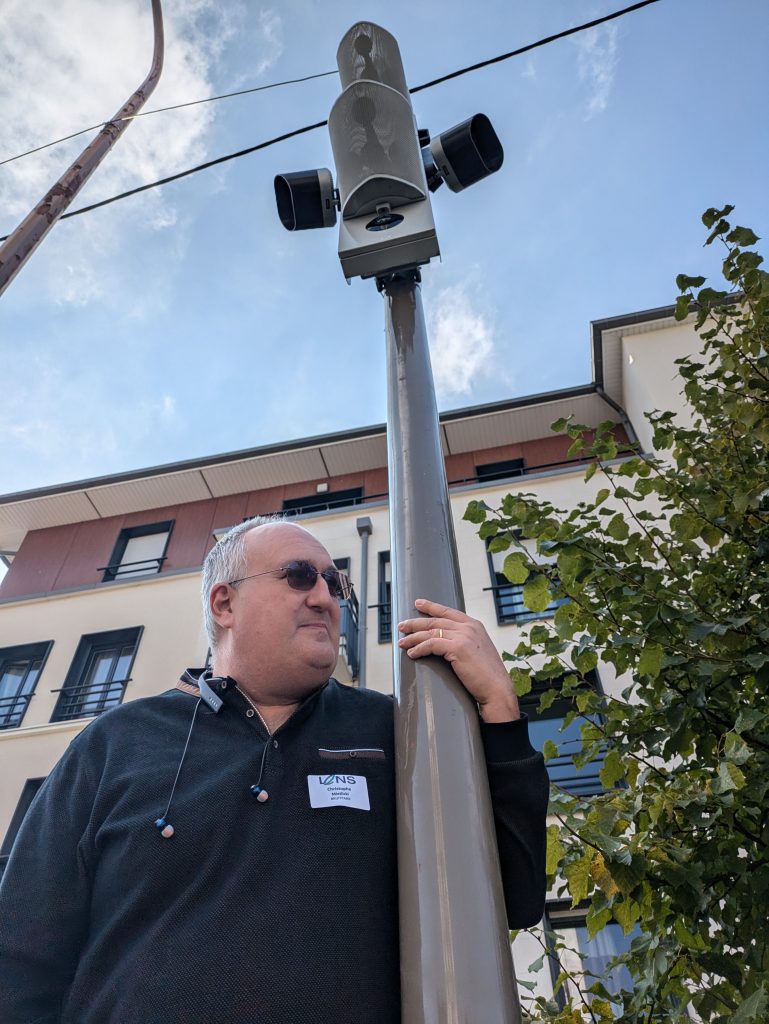
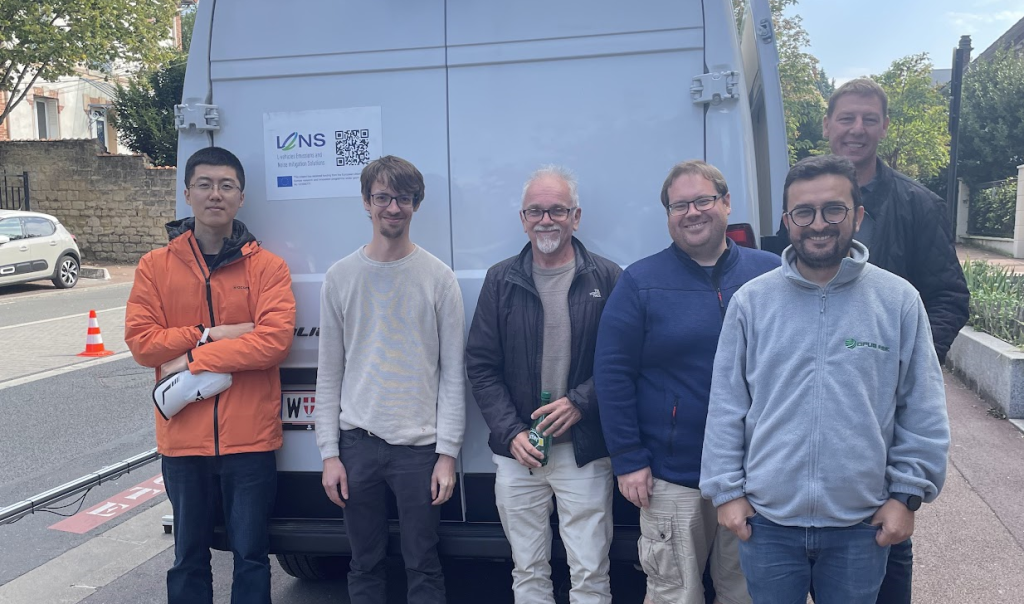
Presentations
Introduction to the LENS project (EMISIA – Giorgos Triantafyllopoulos)
LENS Paris Roadside measurement campaign (IVL – Ake Sjödin)

